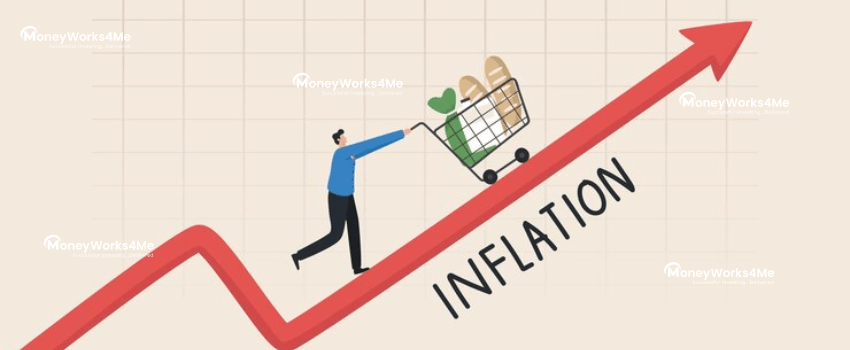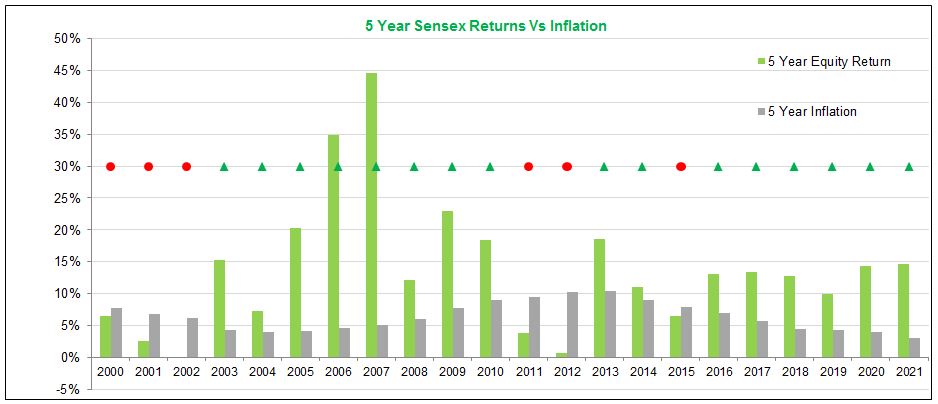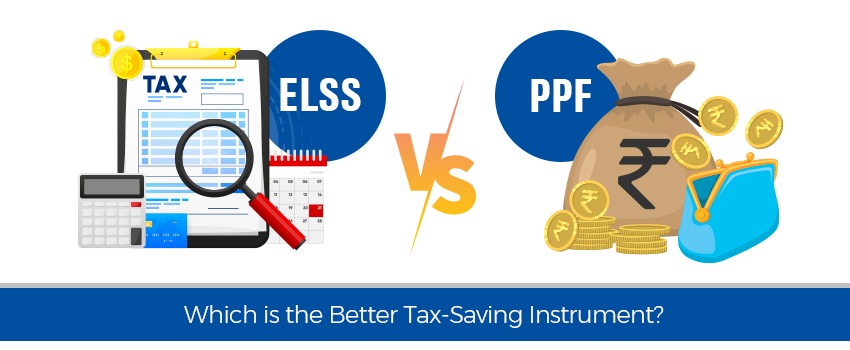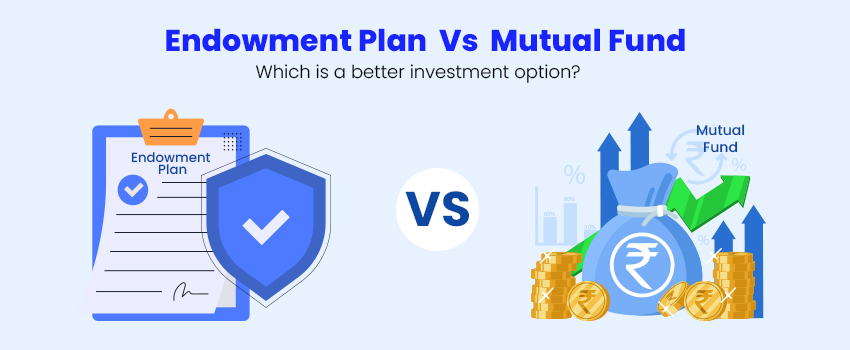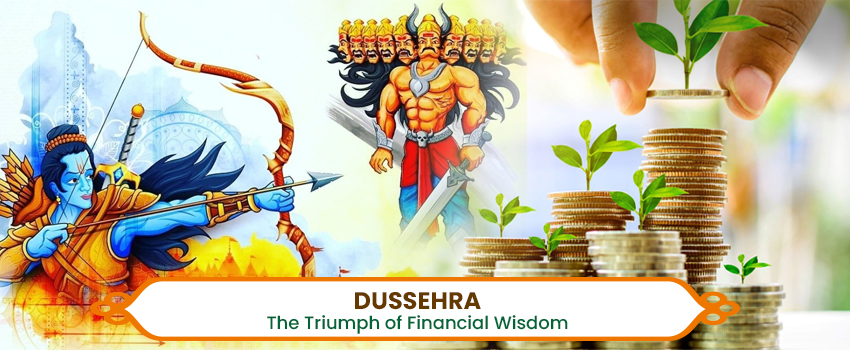Equity is the only asset class available for a retail investor for beating inflation. Over the long term, Equity is quite consistent when it comes to beating inflation and generating wealth. For those who have a risk appetite and a long time horizon, Equity must form the bulk of the asset allocation.
Table of Content:
Does Equity investing beat inflation and grow your savings?
What is inflation and what does it do to your money/savings?
Are your savings beating inflation?
So what do you do to tame this dragon, Inflation?
Does Equity investing beat inflation and grow your savings?
The most common advice in financial planning is to protect your savings from inflation. Ever wondered why? Did you act to make it happen?
What is inflation and what does it do to your money/savings?
Inflation means a rise in the prices of the goods and services of daily or common use, such as food, clothing, housing, etc. The purchasing power of money decreases and the cost of living goes up.
Let’s say you found Rs. 50 note from a photo album older than 10 years. This would have been enough money to buy you a lunch back then.
But does it even buy you a liter of milk today? No!
You can look at the price of everything around you, what you consume, the service you avail, the prices inch up each passing year. In other words, we can say money is losing value. That’s inflation.
Are your savings beating inflation?
Inflation in India has averaged between 4-6% p.a. Using 5% as inflation, Rs. 1 Lac is worth only Rs. 60,000/- 10 years later and 38,000/- 20 years later. 60% loss of value in 20 years. In a way, inflation is a tax on idle savings.
Today expenses are going up with inflation but so is income, it doesn’t pinch so much. But it will hurt when current savings won’t buy you the same amount of goods 10 years hence.
So what do we resort to?
We invest to grow our savings. But it comes to investing, the first thing that comes to mind is Fixed Income, i.e. Fixed Deposit in a bank. 53% of Indian household savings are in bank deposits. Safety and peace of mind are indeed priceless. But will investing in FD help beat inflation? No!
The money invested in FD at best would grow to match the inflation but mostly lag inflation post-tax. Your money will continue to lose its worth over time. The same is true for Gold, it has been inconsistent in beating inflation.
If you spend Rs. 25,000 today per month and wish to maintain a similar lifestyle, you need to save more than Rs. 25,000 just to afford the same lifestyle post-retirement, as inflation will erode the value of this Rs. 25,000. But is it possible for everyone to save more than we spend? Rather our lifestyle catches up with an increase in our income versus growth in savings.
So what do you do to tame this dragon, Inflation?
Equity!
Equity is one asset class that has beaten inflation hollow. Nifty, a benchmark for equity performance, has delivered a return of ~13% CAGR from 1994 to 2020 versus 7% CAGR inflation.
Assuming 5% excess return of Equity over current inflation of 5% CAGR, your Rs. 1 Lac in saving today can buy you goods worth Rs.1,58,000/- 10 years later and whopping 2,50,000/- 20 years later. These amounts in today’s rupee terms.
Even if your current saving rate is a fifth of today’s spending rate, you can maintain the same lifestyle for 20 years hence.
Why does Equities beat inflation?
Equity is a share of ownership in the companies. Its value depends upon growth in the company’s profits. The companies own tangible or intangible assets which also tend to grow with inflation.
Let’s take, a shampoo manufacturing company. It sells 10L bottles of shampoo every year. Each year when the cost of its raw material goes up, it increases the final price of a shampoo bottle. Consumers, including us, pay a higher price for it each year facing the brunt of inflation.
Increasing prices helps the companies to grow their absolute value of profits in lines with inflation. Equity value directly correlated to companies’ profit, also thereby beating inflation.
How consistent is Equity in beating inflation?
If one invested into Sensex/Nifty at the start of each calendar year and held for 5 years, we found that Equity has beaten Inflation on 3 out of 4 occasions. Besides, in those years when it didn’t, holding onto investments for another year or two definitely beat the inflation of the prior 6-7 years.
The green triangle shows the period during which equity has beaten inflation while the red dot indicates it failed to beat it.
Performance over 10 years is even startling! On 9 out of 10 occasions, Equity raced ahead of inflation. The margin of the beat was also higher, which more than compensated a year when it didn’t beat.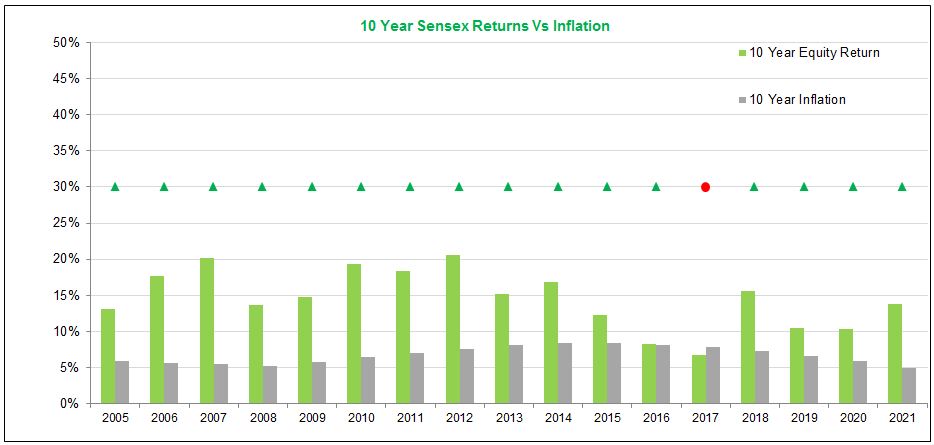
The green triangle shows the period during which equity has beaten inflation while the red dot indicates it failed to beat it.
As we can see from the past, Equity is a very predictable asset over the long term irrespective of when you start. The longer your duration, the more the chances you beat the inflation. The same conclusion is drawn from various studies across the global equity markets.
However, investing in Equity comes with its fair share of volatility in the interim, its long-term advantages far outweigh short-term pain. This can be reduced largely by sticking to a long-term horizon and diversified asset allocation*.
The best time to start investing was yesterday, the second best time is today!
Today, investors who do invest in Equity, often do so with a small portion of their savings, losing out the rest of the savings to inflation. If you are one of the investors who is underinvested in Equity, increase your equity investments today.
Higher the percentage of cash/fixed income in your portfolio, higher will be the erosion of purchasing power in your portfolio.
Equity is way too consistent to not disappoint in long term. If you keep waiting for the right time for entry or exit, you are not giving enough time to your investments to compound.
“The arithmetic makes it plain that inflation is a far more devastating tax than anything that has been enacted by our legislatures. The inflation tax has a fantastic ability to simply consume capital. … If you feel you can dance in and out of securities [Equity] in a way that defeats the inflation tax, I would like to be your broker — but not your partner.” – Warren Buffett
*Asset Allocation Guide: (May vary based on goals)
- Young and aggressive risk appetite investors can invest up to 70% savings into Equity and the rest 30% into Debt/Fixed Income/Gold.
- Investors with a low/moderate risk appetite and more than 5 years’ horizon can invest up to 40% savings into Equity and the rest 60% or more into Debt/Fixed Income.
If you liked what you read and would like to put it in to practice Register at MoneyWorks4me.com. You will get amazing FREE features that will enable you to invest in Stocks and Mutual Funds the right way.
Need help on Investing? And more….Puchho Befikar
Kyunki yeh paise ka mamala hai
Why MoneyWorks4me | Why Register | Call: 020 6725 8333 | WhatsApp 8055769463


